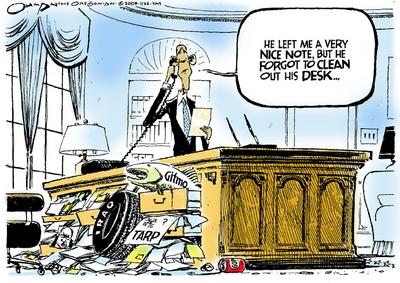- MENU
- HOME
- SEARCH
- WORLD
- MAIN
- AFRICA
- ASIA
- BALKANS
- EUROPE
- LATIN AMERICA
- MIDDLE EAST
- United Kingdom
- United States
- Argentina
- Australia
- Austria
- Benelux
- Brazil
- Canada
- China
- France
- Germany
- Greece
- Hungary
- India
- Indonesia
- Ireland
- Israel
- Italy
- Japan
- Korea
- Mexico
- New Zealand
- Pakistan
- Philippines
- Poland
- Russia
- South Africa
- Spain
- Taiwan
- Turkey
- USA
- BUSINESS
- WEALTH
- STOCKS
- TECH
- HEALTH
- LIFESTYLE
- ENTERTAINMENT
- SPORTS
- RSS
- iHaveNet.com
by Jules Witcover

WASHINGTON -- The disclosure that the George W. Bush administration had plans to assassinate al-Qaida leaders and
never told
The credibility of
The idea of whacking Osama bin Laden and associates, as Tony Soprano might have put it on television, in itself was one
of Bush's first stated objectives after
But ever since the hearings of 1975 led by Sen.
The Church Committee was explicit in its thorough review of CIA clandestine operations and plans, which included attempts on the lives of Patrice Lumumba in the Congo, Rafael Trujillo in the Dominican Republic, the Diem brothers in Vietnam and Fidel Castro in Cuba, among others.
In examining the CIA, the committee reported then, it "was struck by the basic tension -- if not incompatibility -- of covert operations and the demands of a constitutional system. Secrecy is essential to covert operations," it acknowledged, but "secrecy can, however, become a source of power, a barrier to serious policy deliberation within the government, and a means of circumventing the established checks and procedures of government."
The committee further concluded that the CIA's secrecy "contributed to a temptation on the part of the Executive to resort to covert operations" in order to overcome bureaucratic, congressional and public debate. So provisions subsequently were established for the classified briefing of a small number of House and
Among the top officials of the Gerald Ford administration who argued against greater consultation with the congressional leadership in this field was Donald Rumsfeld. When the committee sought the testimony of the CIA director at the time, William Colby, Rumsfeld and others sought to have him merely brief the committee. Church in the hearings characterized the CIA as "a rogue elephant on a rampage."
Ford later signed an executive order forbidding the assassination of foreign leaders seen as threats to American national security, and the order was updated in 1981 by President Ronald Reagan. Through all this time, the congressional leadership was supposed to be kept informed of all CIA schemes under tight conditions of secrecy.
But Panetta, as soon as he learned of the latest secret plan for assassinations, informed key congressional leaders not only that Bush had authorized it after 9/11 and also that former Vice President Dick Cheney had urged the CIA to hold off telling
Intelligence officials have now said no such assassinations of high al-Qaida leaders ever were undertaken. But that will not do much to repair the already shattered credibility of the departed Bush administration with members of
The whole business comes at a difficult time for President Obama. He has directed his subordinates and urged
At the same time, Obama's attorney general, Eric Holder, is said to be considering, contrary to his boss's don't-look-back preference, the appointment of a special prosecutor to explore whether Bush interrogators used torture on suspected terrorists.
Bush is gone now and only his legacy is at risk. But it's important for Obama to make clear to
Jules Witcover's latest book, on the Nixon-Agnew relationship, "Very Strange Bedfellows: The Short and Unhappy Marriage of Richard Nixon and Spiro Agnew,"
has just been published by
You can respond to this column at juleswitcover@earthlink.net.
WORLD | AFRICA | ASIA | EUROPE | LATIN AMERICA | MIDDLE EAST | UNITED STATES | ECONOMICS | EDUCATION | ENVIRONMENT | FOREIGN POLICY | POLITICS
Plans to Assassinate al-Qaida Leaders - Another Bush-era Inheritance